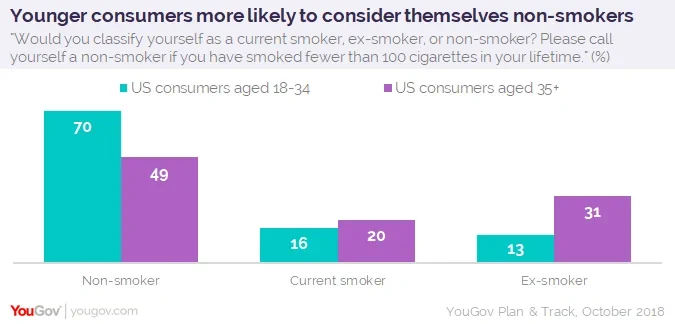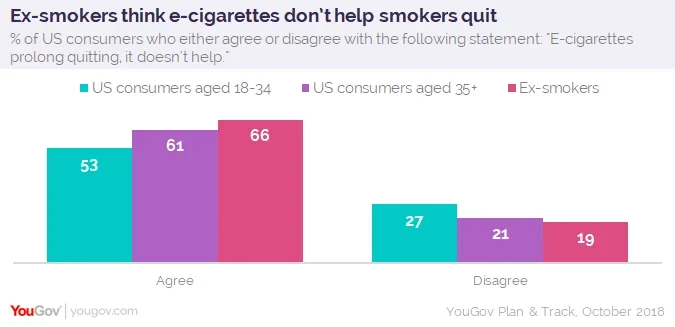Americans aged 18-34 are also less likely to smoke traditional cigarettes
Juul Labs, maker of the popular Juul electronic cigarette, has been in the headlines recently for two different, yet related, reasons. The first is that sales are booming, helping the company become the fastest startup to reach a $10 billion valuation. The second is that, due to the widespread use of the device, especially among younger Americans, federal agencies from the Food and Drug Administration to the Centers for Disease Control and Prevention are starting to show concern.
According to recent data from YouGov Plan & Track, US adults aged 18-34 are much more likely to identify as non-smokers — defined as someone who has smoked fewer than 100 traditional cigarettes in their lifetime — than those aged 35 or older. In total, 70% of millennials classify themselves as non-smokers, compared to just under half (49%) of consumers aged 35+.

Nearly one-third (31%) of consumers aged 35+ consider themselves ex-smokers, while one in five (20%) report being a current smoker. For consumers aged 18-34, those numbers come in at 13% and 16%, respectively.
Despite what some research suggests, the idea that e-cigarettes can help a smoker break the habit persists. Additional figures show that while a slight majority (53%) of US adults aged 18-34 appear to believe that e-cigarettes don’t help turn a smoker into an ex-smoker, they’re the most skeptical age group. Overall, 61% of consumers aged 35+ think e-cigarettes prolong quitting, instead of helping. For ex-smokers, the agreement level is even higher: 66%.

Around this time last year, New York state passed a law that banned e-cigarettes anywhere traditional cigarettes were already prohibited, such as bars and offices. A YouGov poll found that, in this case, younger and older US adults found accord, as 58% of each cohort showed agreement with the ban.
Photo: Getty










